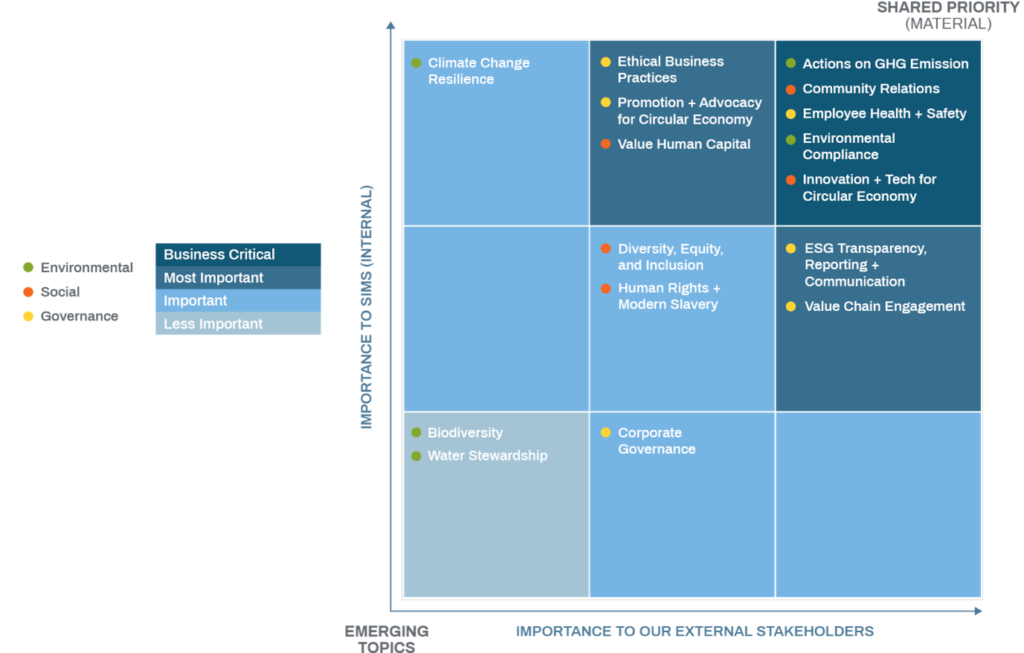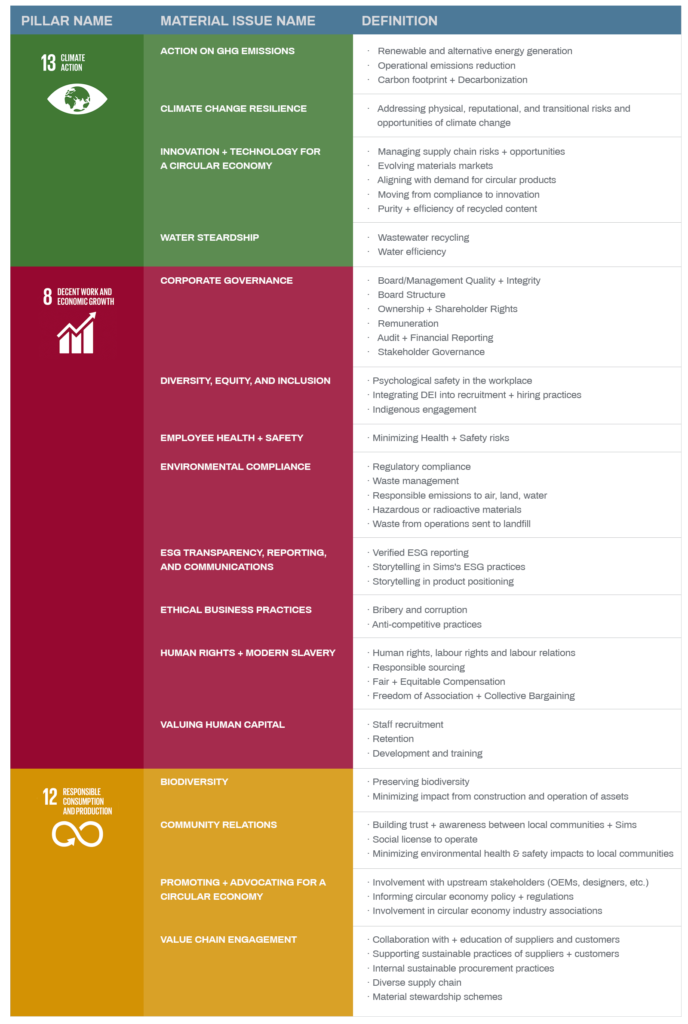Sims Limited (Sims) recently refreshed our environmental, social and corporate governance (ESG) materiality analysis, which was last conducted in 2019, to help us identify the topics that matter most to our stakeholders – both now and in the future.
Our materiality assessment uses data and insight from customers, investors, industry groups, circular economy leaders, employees and senior management. We also drew on information from a peer and media review. The key insights are incorporated into the materiality matrix, which is shown below, and they have been validated by our executive leadership team and board of directors.
This year, we changed the presentation of the matrix to a grid format and grouped related topics together (shown in the table at the end of this article) to help make our matrix easier to interpret. The top-right box shows those topics, presented in alphabetical order, that are the shared priorities of Sims and our stakeholders. Each of the topics have been linked to one of our sustainability strategy pillars: operate responsibly, close the loop, and partner for change. Each pillar is aligned to one of three United Nations Sustainable Development Goals (SDGs).

Emerging Topics
Since the 2019 materiality analysis, new topics have emerged as material, including action on greenhouse gas (GHG) emissions, innovation and technology for the circular economy, and community relations. These are important topics that are directly related to how we create value for shareholders and society, as well as how we will achieve our purpose, create a world without waste to preserve our planet.
As one of our core values, health and safety remain a priority at Sims. That is why we added ‘Environmental Compliance’ as a new category. It is a consolidation of a number of topics that were identified during fiscal year 2019, such as waste, emissions to air, and compliance with regulations.
Next Steps for Sims: Identifying challenges/opportunities and taking action
These topics are all closely related; for example, managing our environmental impacts and being a safe employer are key to how we create value in our local communities. Sims Limited recognises the integrated nature of sustainability topics in our sustainability strategy and planning processes. The topics can represent both challenges and opportunities for Sims – for instance, acting on GHG emissions. The global transition to a low-carbon economy presents significant opportunities for Sims Limited and our circular business model, but it also requires that we take ambitious action on reducing our own emissions.
The approach that was taken to identify our material sustainability topics is aligned to the Global Reporting Initiative (GRI) Standards (2021) and the AA1000 Accountability Principles Standard (2018).

View the Sims Limited FY21 sustainability report for more information about our sustainability targets and performance.
